Table of Contents
ToggleIf you’re prepping for your parenthood journey, you’ve probably heard or read about the term implantation. You may have heard about implantation bleeding or implantation cramping and might be looking for the details of when and how this happens!
For all couples planning for pregnancy, the phrase “getting pregnant” is not as easy as it sounds. Your body undergoes a whole dramatic process at the time of conception, and Implantation is a significant biological event and the critical stage in the entire pregnancy.
Implantation is when the fertilized egg implants and attaches itself to the uterus lining, the beginning development stage for the embryo and placenta. Implantation usually occurs after a few days of ovulation, reflecting the beginning of pregnancy.
Early pregnancy or the first pregnancy can be confusing, especially when you’re not sure whether you’re pregnant or not. Although some women may not even notice or go through the implantation symptoms, others might experience periods- like a bit of spotting, cramping, and other related signs.
This blog will help you with detailed facts about implantation, what it is when it happens, and the symptoms and signs of implantation. Scroll down to know everything about the beginning stage of pregnancy!
What is Implantation?
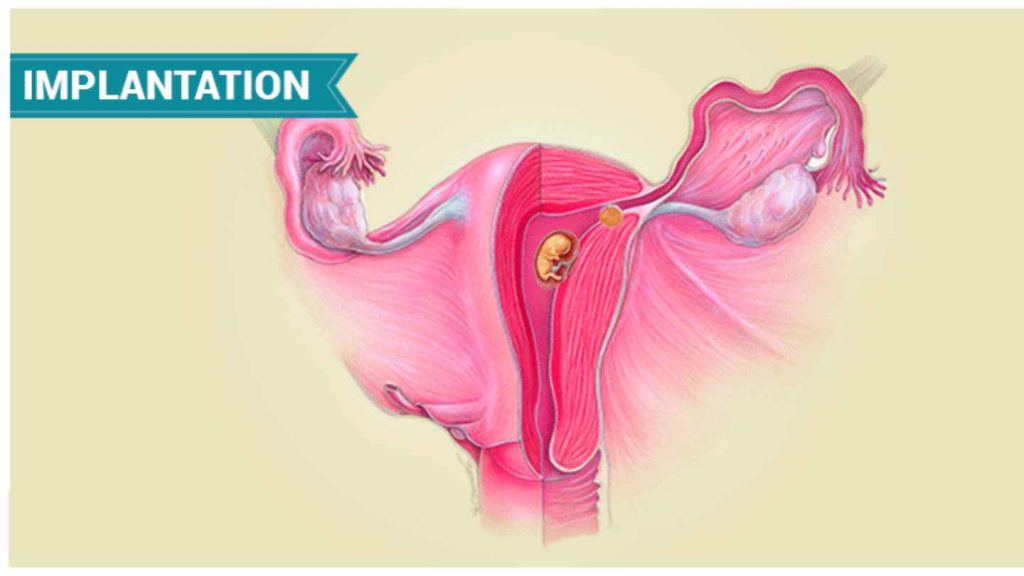
Implantation is an early sign of pregnancy. After the egg and the sperm join and travel down the fallopian tube through the uterus, they divide into multiple cells and form a cluster of about 100 cells. This cluster of rapidly multiplying cells is called a blastocyst.
Blastocyst can easily be understood with a reference to an orange, a thin outer layer with a larger inner group of cells.
This little bundle of cells has to attach itself to the uterus or implant into the uterine wall, resulting in the implantation process.
This step further triggers and increases the levels of all pregnancy hormones, including estrogen, hCG (human chorionic gonadotropin), or progesterone. If implantation fails or doesn’t happen, the uterine line sheds, resulting in regular monthly periods. But if it occurs, then the embryo and placenta develop while keeping the uterine lining in place to support your future baby.
Following implantation, a surge in hormones, particularly progesterone, can cause headaches along with other pregnancy and menstrual symptoms. While these hormone levels are necessary for a healthy pregnancy, they can also trigger headaches due to their rapid increase.
When Does Implantation Occur?
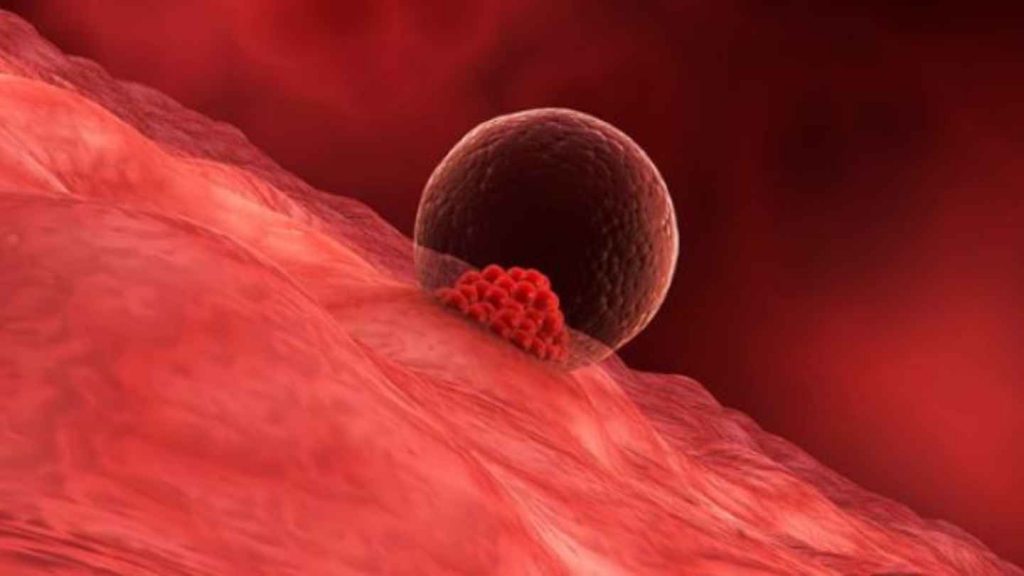
The endometrium goes through changes during the menstrual cycle, thickening, and shedding. It influences the implantation time. It only accepts a blastocyst for a brief period of time during each cycle.
“Implantation usually occurs after 24-26 days of your cycle or 6-12 days after you ovulate.”
Therefore, the exact date of implantation depends on your ovulation period and the conception period, whether it occurred late or early in the ovulation window.
Since implantation happens near the start of your next period, you may experience some spotting or bleeding, which is often mistaken for the beginning of your menstrual period. But apart from your natural PMS symptoms, your body produces more hCG hormones during implantation.
Therefore, you need to notice every minor change in your body to know what’s happening. Moreover, you can take pregnancy tests to clarify your pregnancy status after a first missed period.
Implantation Timeline
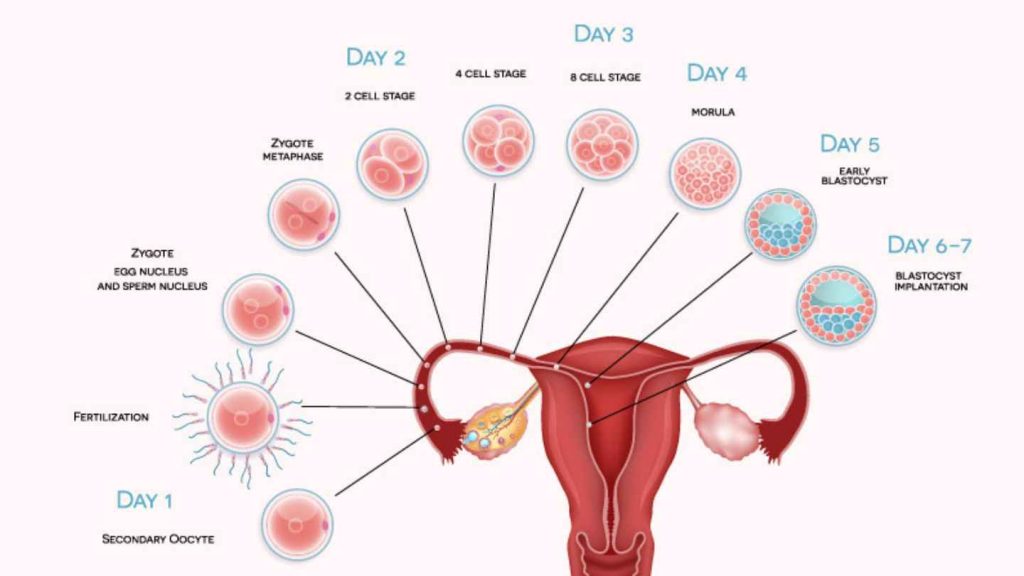
After sperm and egg connect (conception), the combined cells begin rapidly dividing and go to the uterus via one of the fallopian tubes. This clump of quickly dividing cells is known as a blastocyst.
Once within the uterus, this little cluster of cells must adhere, or implant, to the uterine wall—this process, known as implantation and stimulates the production of pregnancy hormones.
According to National Center For Biotechnology Information, Implantation occurs six to ten days following ovulation, typically between 8 and 9 days after conception. Therefore, the precise timing of implantation might vary depending on when ovulation happened and if conception happened early or late in the ovulation period. Assuming the absence of symptoms doesn’t mean you aren’t pregnant. Remember that most women have no indications of conception or implantation, but they are still pregnant!
Even if the conditions are optimal, implantation may not occur. A failure of implantation is a frequent cause of early pregnancy loss, as per experts.
An implantation and pregnancy timeline would comprise the following activities predicated on a 28-day menstrual period:
- Day 1: Your day one of period
- Day 14: ovulation
- Day 15: Fertilization, which occurs around 24 hours following ovulation.
- Day 20 to 24: implantation of the blastocyst inside the uterus
When Does Implantation Occur Table:
| Cycle Length (days) | Ovulation and fertilization (days) | Implantation (days) |
|---|---|---|
| 28 | 14 | 20-24 |
| 30 | 16 | 22-26 |
| 32 | 18 | 24-28 |
Implantation Symptoms & Signs
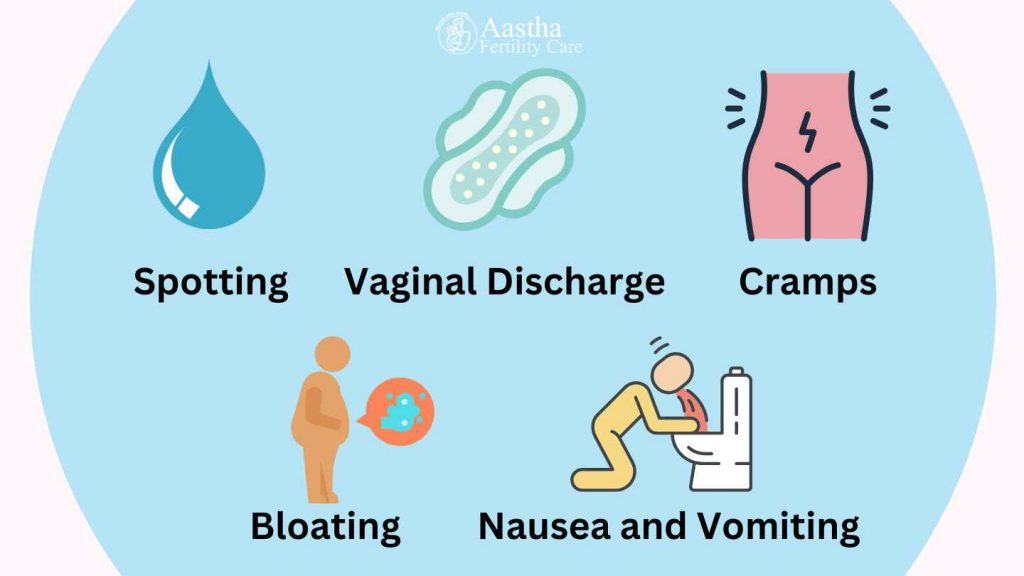
Symptoms and signs of implantation are your body’s way to welcoming pregnancy. Some women might assume a lack of symptoms- which further doesn’t mean that you’re pregnant.
Most of the implantation symptoms are similar to that of menstruation signs, and it can be challenging to differentiate between the two.
Light bleeding and spotting are the most apparent signs of implantation, and around 15-25% of women experience spotting in their first trimester.
Some of the other common Signs & Symptoms of implantation are:
Vaginal Spotting and Light Bleeding
Some women might experience sight bleeding or spotting in their early pregnancy days, and it is presumed to be related to implantation. Almost 15-25% of women experience bleeding, and it happens when the fertilized egg is implanted into the uterus.
This irritates the uterine line and results in spots that usually last for 1-3 days. But unlike menstrual bleeding, implantation blood is usually brown or light pink, and the flow is also light.
White or Clear Vaginal Discharge
You might also experience a slight difference in the mucus during ovulation. It would be slightly thicker, yellow, and white after implantation instead of clear and stretchy. This symptom is less common than spotting and lasts only for 1-2 days.
Mild Uterine Cramping
Early pregnancy causes a rapid shift of hormones precisely triggers the levels, further resulting in cramping. Some women might feel lower back pain, tenderness, or cramps which typically lasts only for a few days.
Swollen or Tender Breasts
Your breasts may feel sore with the surge in hormone (hCG, estrogen, and progesterone) levels. Some women might experience tenderness and breast swelling before their periods, but the same symptoms during implantation are more noticeable.
Bloating
Rising hormone levels during early pregnancy also lower the functioning of the digestive system, which might make you feel bloated. But this sign is also common during the menstrual period, making it difficult for the aspiring mother to conclude.
Headaches
Hormone surge is the main reason behind most pregnancy and menstrual symptoms. It can also lead to a headache- following implantation.
Nausea
Morning sickness is one of the most common early pregnancy symptoms. Increased progesterone levels may lower your digestion, making you feel nauseous and increasing the sensitivity toward the smell, making the problems worse sometimes.
Mood Swings
Mood Swings are also one of the symptoms reflecting implantation. This might happen due to rising hCG levels, progesterone and estrogen, making you feel dull or moodier than usual.
Headache
Although these rapidly increasing hormone levels, especially progesterone, are beneficial and essential for a healthy pregnancy, they can also cause headaches after implantation.
How To Track Implantation
Keep the following factors in mind when charting your menstrual cycle, regardless of whether your goal is to simply know when to expect your period or to monitor your ovulation depending on your cycle:
- Note the start and end times of your bleeding. Be careful to provide that information as well if you see any spotting between cycles as well.
- Describe the color of your period blood. Do you have heavy or light bleeding? Are there any clots present? Is it a bright red or a dark brown hue? Keeping track of all of this is crucial because the kind of blood you have may be a sign of how well your period is going.
- Take note of your symptoms. Did you feel particularly emotional or suffer from a severe headache? Your menstrual and PMS symptoms play a significant role in your general health.
Is there any Pain During The Implantation Process
The morula develops into a blastocyst inside the uterus and finally penetrates the uterine lining during implantation. While some women report experiencing discomfort or cramping during the implementation period, not all women will. What causes cramps, if any? The fertilized egg should attach to the uterus lining to become pregnant. The egg starts the implantation process within the uterus after passing via the fallopian tubes and developing into a blastocyst. The blastocyst receives a blood supply during implantation, enabling it to begin developing into a fetus.
You could also suffer implantation bleeding, known as spotting, along with cramps. According to WebMD Implantation Bleeding often occurs between 10 and 14 days following conception, close to the start of your regular menstruation, and the implantation bleeding is lighter than your menstrual cycles.
Implantation cramping is usually mild and occurs when the fertilised egg implants itself in the uterus, causing uterine muscles to contract. It can occur about a week before a woman’s expected period and may be accompanied by other symptoms such as light spotting, breast tenderness, or fatigue. While it is generally considered a normal part of early pregnancy, severe pain or heavy implantation bleeding requires medical attention.
How much time do you have to spend in the hospital?
In case you are conceiving naturally, there is no requirement for a hospital visit or stay. Further, the symptoms are not severe or unbearable and need hospitalization.
Yet, in the case of IVF, the embryo transfer process will be conducted in the hospital. Embryo transfer is a relatively safe and normal process, and negative effects are uncommon, but minor cramping is possible. Some patients return home the same day with a prescription for progesterone supplementation to assist a future pregnancy. Some physicians prescribe 24 hours of bed rest. However, there is no proof that this is essential. Other sites recommend resuming regular activities since movement may improve blood flow to the uterus.
Implantation and Pregnancy Tests
Pregnancy Tests detect the presence of hCG (human chorionic gonadotropin) hormone levels in your body. hCG is produced with the development of the placenta, and timing plays a significant role in pregnancy test results.
In the early stages of pregnancy, hCG levels are low in the urine because there hasn’t been enough time between testing and implantation, and hCG levels in the body may vary. A pregnancy that has been implanted only four days before your period is known as the early pregnancy phase and is usually not detected by the test kits, resulting in increased chances of false-negative results.
When Should You Take a Pregnancy Test?
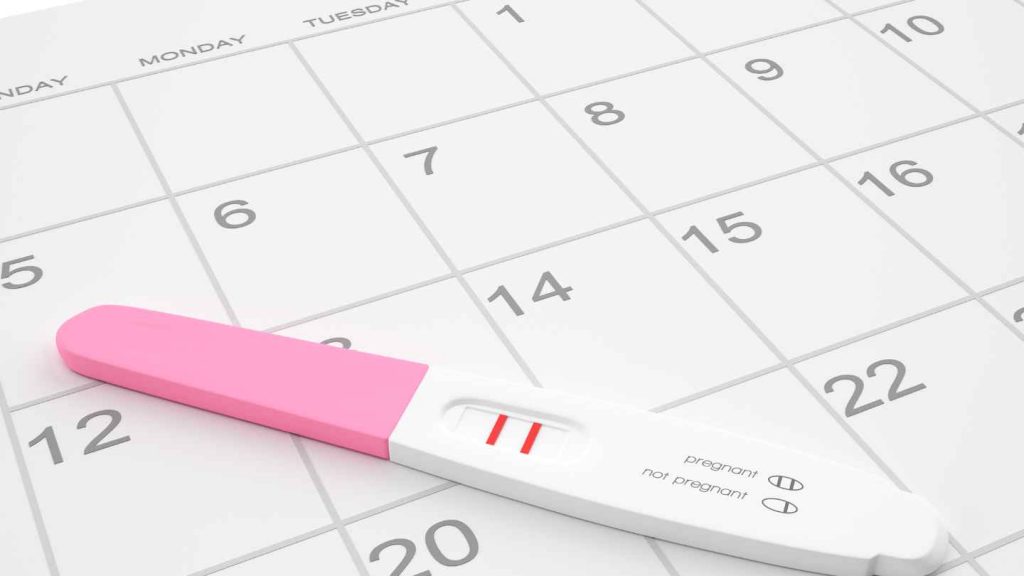
Implantation is an important but often missed event. Because it might cause minor spotting, some women confuse it with their menstrual period. Take a home pregnancy test if your cycle has not arrived and you are unsure whether you are pregnant.
The home pregnancy tests work by detecting the hormone human chorionic gonadotropin (hCG) levels in the blood.
Before implantation, the body begins to make this hormone. According to National Library of Medicine – Blood and urine levels multiply every 24 hours for eight weeks, reaching their peak at around ten weeks.
According to FDA (USA Food And Drug Administration), Individuals with 28-day cycles can use home pregnancy tests to find hCG in their urine 12–15 days following ovulation.
A positive pregnancy test is probable on the day of a missed period. But the tests aren’t so accurate that a negative result at around this point is a definite sign that the woman isn’t pregnant.
The Possibility Of False Positives And False Negatives In Pregnancy Tests
False positives in pregnancy tests are rare, but can happen due to using expired or faulty tests, fertility treatments with hCG injections, or having a chemical pregnancy.
- A chemical pregnancy is when a fertilized egg implants but does not develop properly, leading to early pregnancy loss.
- False negatives can occur when taking the test too early before hCG hormone levels are detectable or due to user error, such as not following instructions correctly.
It is important to repeat the test after a few days or seek medical attention if unsure about the test result or experiencing pregnancy symptoms.
Factors that affect Implantation
Role of Age And Lifestyle Factors In Implantation:
- Fertility declines with age due to a decrease in the number and quality of eggs in the ovaries.
- Smoking, alcohol consumption, and stress can also decrease fertility and increase the risk of miscarriage.
- Maintaining a healthy lifestyle and avoiding harmful habits can improve the chances of successful implantation.
- Stress management through relaxation techniques such as yoga or meditation can also help improve fertility.
- Taking steps to maintain a healthy lifestyle and manage stress levels is crucial for improving fertility and increasing the chances of successful implantation.
The Impact of Irregular Menstrual Cycles On Implantation
Irregular menstrual cycles can make it difficult to determine the most fertile period for conception, reducing the chances of successful implantation. They may also be a sign of hormonal imbalances that affect the quality of eggs.
Seeking medical attention and maintaining a healthy lifestyle can help improve menstrual regularity and increase the chances of successful implantation.
The Impact of Underlying Medical Conditions On Implantation
PCOS and endometriosis are medical conditions that can impact implantation by causing hormonal imbalances and inflammation, respectively. They can reduce the chances of successful implantation and increase the risk of miscarriage. Seeking medical attention and treatment options can help improve fertility and increase the chances of successful implantation.
What is Implantation Dip?
You may have heard about cold flashes during pregnancy or menstrual periods. This usually happens during the second half of the menstrual cycle when the women’s body temperature starts to rise suddenly, hiking up to 1 degree at fertilization.
This further remains elevated during your entire pregnancy journey, reflecting successful implantation. If it drops back down to normal, it reflects that your period is about to come.
Cost & Insurance Coverage of Implantation Process In India
In India, IVF therapy costs typically range between Rs 60,000 to Rs 80,000, including medications. The majority of couples, however, really have to incur more than Rs 5 lakh on IVF treatment services since many IVF cycles might be necessary. You must consider all the costs and compare the services of different IVF centers you’re seeking for affordable IVF in India. In India, insurance doesn’t cover fertility treatment. So make an informed choice when choosing an IVF center in Jaipur.
Things Your Family Should Know About Implantation Process
In the early stages of pregnancy, bleeding often occurs during implantation. It is one of the first pregnancy signs and indicates uterine implantation. A little spotting is typical and might indicate implantation and pregnancy. 10 –14 days after conception, it may happen. If you were pregnant at the time, you might have missed your period at that time. Typically, it doesn’t last over a few days and is short. The staining may be so faint that you can just wipe it off, or it may call for a thin, sanitary napkin. Implantation bleeding may show up as follows, depending on when you see it:
- colors of red (fresh bleeding)
- pink or orange (when combined with vaginal fluid or cervical mucus)
- dark brown or crimson (oxidized, older blood)
Even though implantation bleeding is one of several indicators of pregnancy, it may not always be evident. Additionally, it could imply various health issues other than pregnancy.
It is necessary to be aware of any further indications of conception. A few of them are:
- Nausea
- Fatigue
- Tender or sore breasts
- Constipation
- Frequent urination
- Bloating
- Mood changes
- Cramping
Monitoring your menstrual cycle might be beneficial. A skipped menstrual cycle may be used to quickly determine if you are pregnant, especially if you are trying to conceive.
What are the Problems Related to Late Implantation?
Pregnancy is an entirely mysterious process, and implantation is an essential yet critical part of the journey. This is an easy-to-miss event due to mild or menstrual-related symptoms.
Sometimes, the implantation of an embryo also happens without a hitch, leading to increased future risks. Some of the related events include-
1. Late Implantation
Late implantation happens when the embryo implants at the latter end of the implantation window within 6-10 days. This sometimes increases the risk for miscarriage and can happen due to old maternal age and maternal smoking.
2. Implantation Failure
The causes of implantation failure are always unknown and are more likely to happen due to uterine abnormalities like polyps, endometriosis, or embryonic abnormalities. When it happens more than 3 times during the IVF procedure, it is referred to as RIF (recurrent implantation failure).
3. Ectopic Pregnancy
Implantation mainly occurs inside the uterus, but there is less than a 3% chance that sometimes the egg implants outside the uterus. This is referred to as ectopic pregnancy and is dangerous for pregnant women. Consult your doctor to see if you feel something strange about the ideal medication and fertility treatment.
Preventive Measures And Tips To Improve Implantation Success
- Maintain an optimum weight through exercise and a balanced diet to improve fertility.
- Eat a balanced diet with plenty of fruits, vegetables, whole grains, and lean proteins to provide essential nutrients and promote a healthy weight.
- Manage stress levels through relaxation techniques such as yoga, meditation, or deep breathing exercises.
- Avoid exposure to harmful substances such as tobacco, alcohol, and environmental toxins that can damage eggs, disrupt hormone levels, and decrease fertility.
- Get regular check-ups with a healthcare provider to identify and treat underlying medical conditions that can affect fertility.
- Time intercourse according to the most fertile period in the menstrual cycle increases the chances of successful implantation.
Summary
Implantation is crucial during early pregnancy and usually occurs within 6-12 days after conception. Some women might notice the signs and symptoms, including light bleeding or spotting, and others might lack these signs.
If there is some issue with implantation, it could lead to failure in pregnancy. For those trying to get pregnant, knowing when implantation occurs is essential. A woman’s implantation timing lets a couple decide when to have sex to become pregnant and when to take the test to get the most reliable pregnancy test results. If you are trying to get pregnant, track your menstrual cycle, as it will help you track your ovulation which is crucial for conceiving. Pay attention to your implantation symptoms, as they can be early signs of pregnancy. And the frustrating part of the phase is that most of these symptoms are similar to that of PMS.
If you are trying to conceive and it is a year you don’t see any positive results, you need fertility treatment. Sometimes, there might be minor problems that cause pregnancy complications, and taking the right fertility treatment at the right time will help you conceive naturally. Or in case there are other conditions, the fertility experts at Aastha Fertility Care can diagnose and help to identify the exact reason behind infertility. The experts at Aastha Fertility Care will help you with all the signs and symptoms, guiding you to the best infertility treatments for a successful pregnancy. Moreover, the center also holds its record for the highest number of successful IVF treatments and deliveries in India, assisting all its patients throughout their journey.
Book your Online Consultation Appointment now for the best advice!
Frequently Asked Questions
1. How do we know implantation has occurred?
By experiencing symptoms like light bleeding and spotting, nauseous feeling, headache, cramps, tender breasts, mood swings, and fluctuation of basal body temperature, you can sense the occurrence of implantation.
2. Can implantation occur after 3 days of ovulation?
Implantation occurs between 6-10 after ovulation in most cases. It is usually very unlikely to experience the same after 3 days.
3. How do we find out if implantation has occurred?
If you feel signs like bleeding, spotting, indigestion, bloating, nausea, and mood swings, implantation is likely.
4. Can implantation occur at 7 weeks?
Usually, implantation occurs between the 6th-10th day. If it happens beyond this window, it is considered late implantation, i.e., on the 8th and 10th day. Implantation occurring at 7 weeks seems quite impossible.
5. Can implantation occur at different times for different people?
Yes, in some cases, implantation can occur at different times for different people.
6. Is there any pain during the implantation process?
Yes, some women may experience headaches, cramps, and breast soreness.
7. How much time do you have to spend in the hospital?
You do not require to go to a hospital if you are trying to have a child naturally. If you use any ART technology, you will probably be back home the same day.

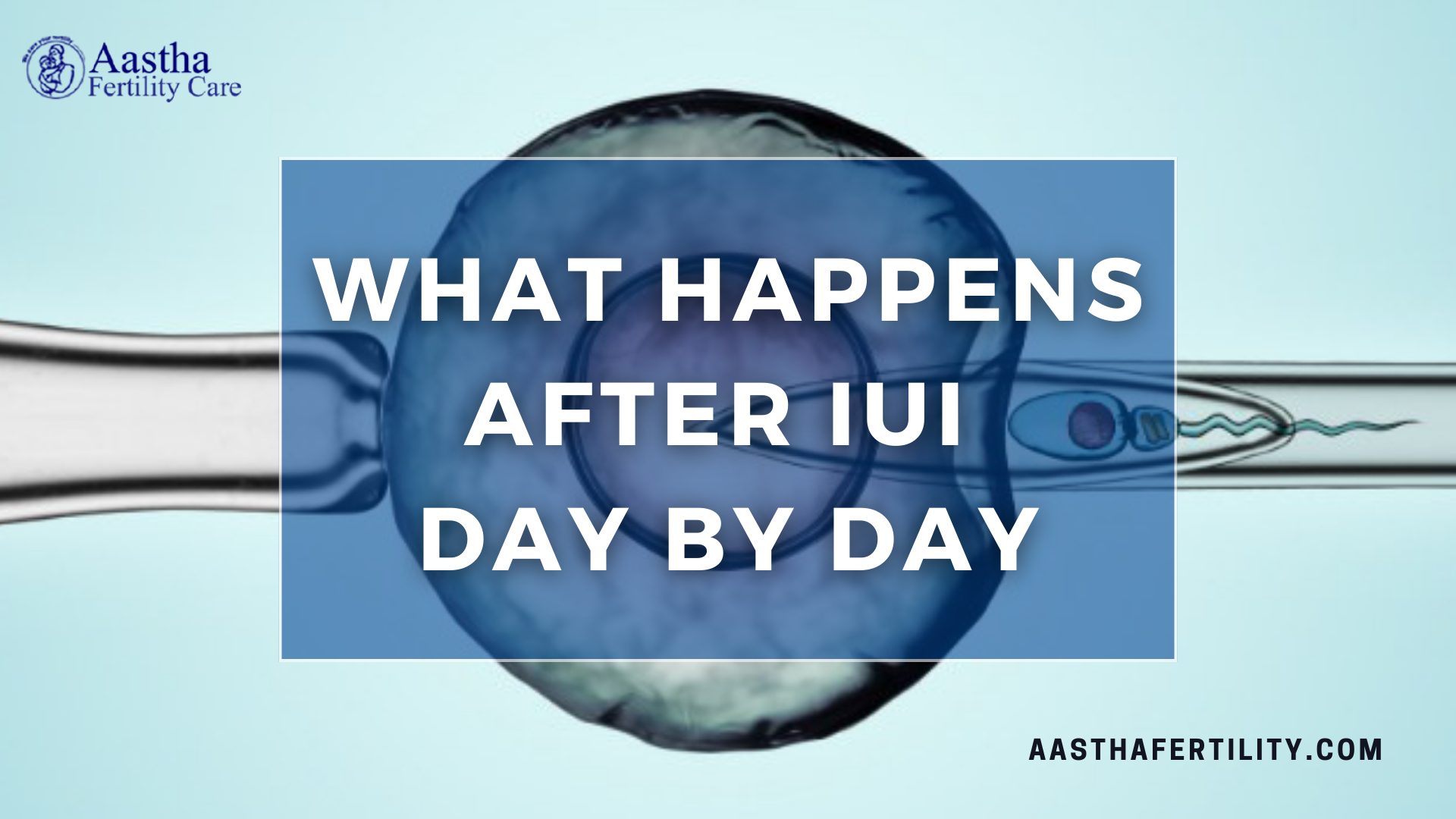

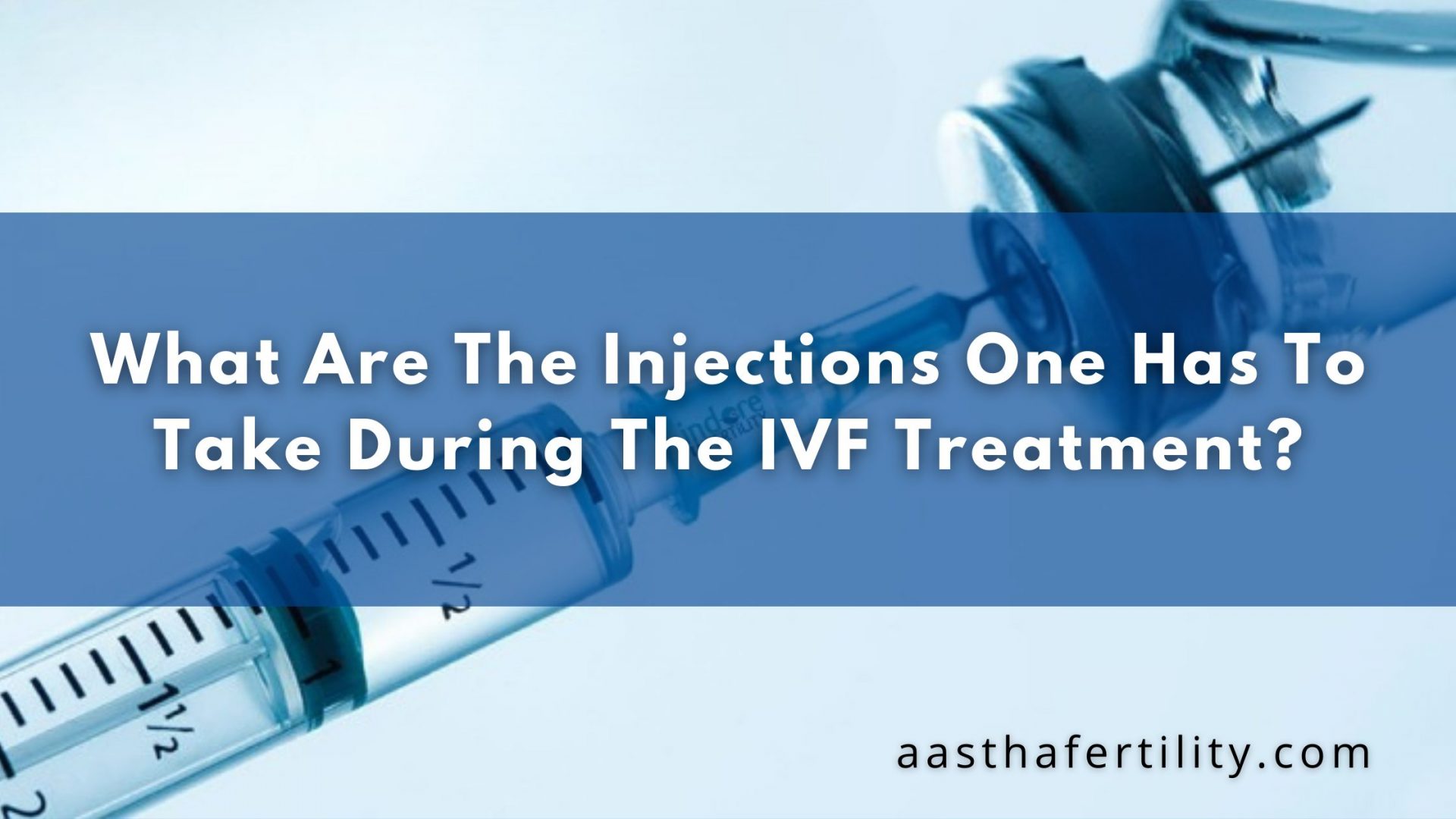

Leave a comment